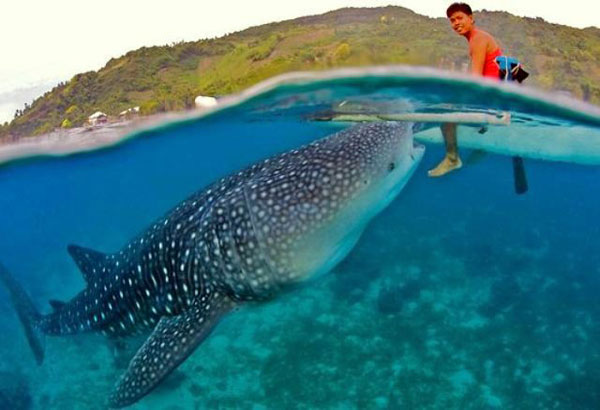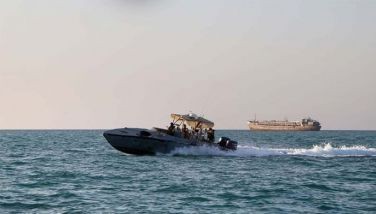‘Wildlife protection to boost ecotourism, job creation’

“As we recognize the importance of ecotourism, we should also recognize certain guidelines that will help set limits as to how we deal with whales for example, like maintaining a certain distance during whale watching, among others,” Chambers said. Janey/Flickr, File
MANILA, Philippines — Protecting wildlife species is good for the economy as it will boost ecotourism that will generate jobs, officials of the United Nations said during the world’s wildlife conference that opened at the Philippine International Convention Center in Pasay City yesterday.
Speaking during a press conference on the sidelines of the 12th Conference of Parties (COP) to the United Nations Convention on the Conservation of Migratory Species (CMS), UN Environment Program deputy executive director Ibrahim Thiaw said “there is a need to protect our ecosystem” because it “serves as a foundation of our economy.”
“It will help bring tourists to a country and generate employment,” he added.
Bradnee Chambers, executive secretary of CMS, called for the formulation of international guidelines on the protection of wildlife species as it will help achieve its goals.
“As we recognize the importance of ecotourism, we should also recognize certain guidelines that will help set limits as to how we deal with whales for example, like maintaining a certain distance during whale watching, among others,” Chambers said.
He also noted that the COP comes at a critical time for wildlife conservation.
“Our wildlife is not an optional extra, but the basis upon which all our livelihoods and progress depend. Only by integrating wildlife conservation with sustainable development will we be able to protect the remaining species on Earth, species from which we benefit in so many different ways,” he said.?For Environment Secretary Roy Cimatu, the COP is a great opportunity to show to the Association of Southeast Asian Nations (ASEAN) community and to the rest of the world the importance of why the Philippines and the Southeast Asian region should protect migratory species and safeguard their habitats.
Cimatu said the Philippine delegation will also push for the Manila Declaration that would call on world leaders to take broad and coordinated action to protect the habitats of migratory species within their respective territories.
The Philippine delegation will also call for the adoption of a resolution urging member countries of the ASEAN to implement marine biodiversity conservation initiatives through the promotion of a network of marine protected areas (MPAs) at the local and regional levels.
MPAs are portions of bodies of water where human activity is restricted to conserve natural resources in these areas. Protection measures are defined usually through local ordinances.
“While there has been notable increase in the number of MPAs in the region, the need to build up a regional connectivity of these areas among ASEAN member-nations remains a challenge,” Cimatu said.
He also called on member-countries to help in the fight against wildlife trafficking and illegal trade.
The Biodiversity Management Bureau (BMB) of the Department of Environment and Natural Resources estimated that the Philippines has been losing around P12 million because of illegal wildlife trade.
“It is underestimated at the moment because it is being based on the taxes that we lose. The value of the species itself in terms of ecosystem services, has been integrated in the accounting,” BMB director Theresa Mundita Lim said.
Global action vs marine pollution
Environment ministers and representatives from international organizations, the business sector and civil society also called for a global unified action to combat marine pollution during the COP.
Chambers said marine debris, lead ammunition and pesticides are the biggest contributors to marine pollution.
“Marine debris impacts more than 800 wildlife species and this number may still go up as complex issues, including microplastics, still need to be investigated,” Cimatu said.
Cimatu noted that the current efforts to solve the marine debris problem in the Philippines include incorporating integrated coastal management strategies into resource use and development plans of local government units (LGUs).
He said several bills were filed in Congress to ban, phase out, tax or regulate the use of plastic bags in the country. While these measures are pending, some LGUs initiated the use of commercially viable and environment-friendly alternatives to plastic.
- Latest
- Trending






























